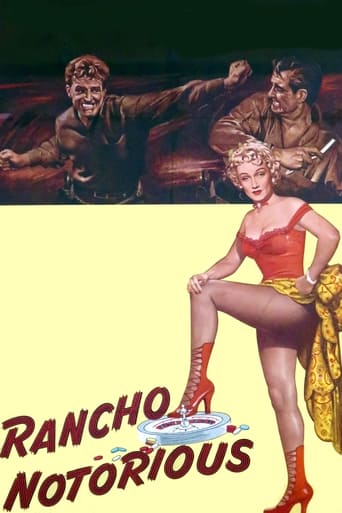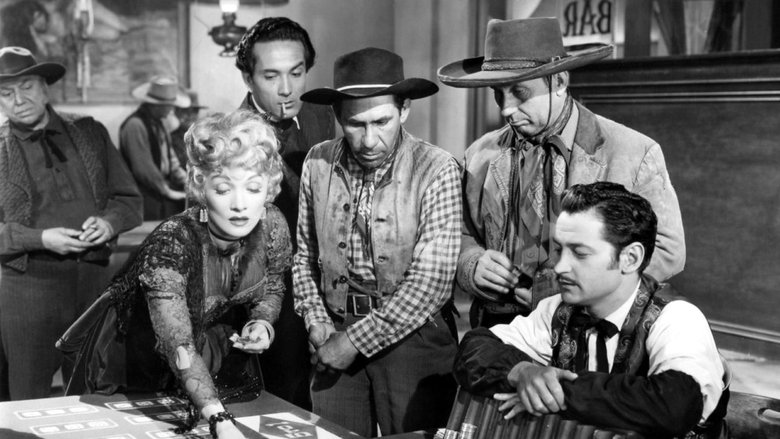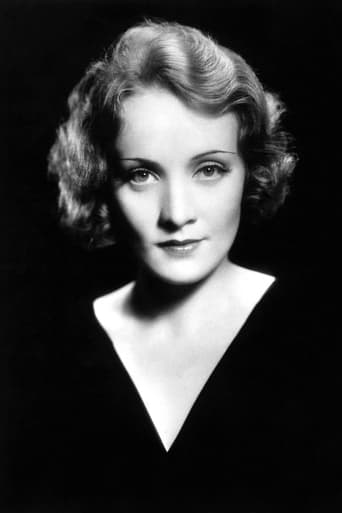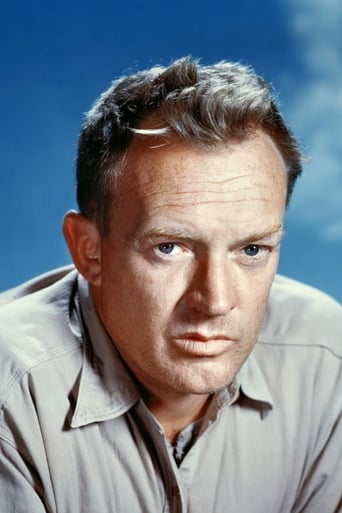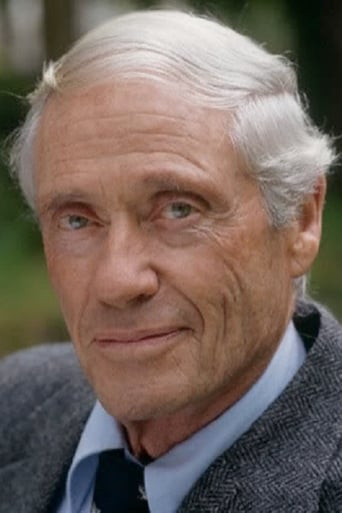Rancho Notorious (1952)
A man in search of revenge infiltrates a ranch, hidden in an inhospitable region, where its owner, Altar Keane, gives shelter to outlaws fleeing from the law in exchange for a price.
Watch Trailer
Free Trial Channels
Cast


Reviews
Best movie of this year hands down!
Don't listen to the Hype. It's awful
Boring
Blending excellent reporting and strong storytelling, this is a disturbing film truly stranger than fiction
The Western is so unique, so internalised, and so full of instantly-recognisable motifs, that many Westerns from the classic era take on the look and feel not of the western United States, but some surreal and separate country, as far removed from America as anywhere else. This was especially the case when the increasingly European production crews in Hollywood produced their skewed yet affectionate takes on this "most American of genres".Rancho Notorious at first comes across as a "noir" Western, at least if one looks at the Sylvia Richards story and Daniel Taradash screenplay, but it's much more than that. Director Fritz Lang probably had much less to do with the screenplay than is sometimes claimed (he was never a particularly great writer, even in his native German), but he has a whole lot to do with the tone of the picture. Far from turning this into an anti-western, he makes use of sweeping landscapes, rough-looking saloons and typical cowboy business, the sort of thing some revisionist filmmakers eschewed, but they are all given that typical Lang look of zigzagging paths and stark diagonal lines. He also injects that stylised rhythmic feel that harks back to his silent pictures or the bizarre semi-musical gangster movie You and Me (1938). A montage of gritty faces underscores a few of the songs, while a mysterious puff of smoke drifts onto the screen as Marlene Dietrich decides whether or not to gamble the last of her money. The impression is of a Western full of exaggerated cliché, and yet totally remote from the cosy cowboy flick.The second crucial figure in Rancho Notorious is the other German émigré, Fraulein Dietrich. Although Dietrich is not really known as a Western star, her only other appearance in the genre being Destry Rides Again in 1939, her character in Rancho Notorious seems to be a play upon her old screen persona. It seems to chime particularly true with her real career trajectory that everyone remembers Altar Keane's name, a few have some sordid stories about her, but no-one seems to know quite what has happened to her now. Dietrich plays the part sublimely, conjuring up some of her old magic, tinged with the weariness of middle-age. Her best moments are in the series of flashbacks in which her character is introduced – her gleeful cheating in the "horse" race scene, or the disdainfulness with which she brushes off a would-be admirer in the gambling joint. She has the air of someone who has been round the block a bit, and yet makes it eminently clear why men still love her and fight over her. The very worthy Arthur Kennedy is ostensibly the lead player, although it is appropriate he is billed below Dietrich not just because she was a bigger star, but because she really is the heart of this movie.Rancho Notorious is rather a cheap and cheerful offering, with the all the production values of the trashy B-Westerns that this era was full of. And yet it has something that even some of the most prestigious and professional pictures do not. Everyone involved seems to have been working on the same wavelength. There is the stripped-down production design of Wiard Ihnen and washed out Hal Mohr cinematography, which help to give it this bleak, distant imagery. Then there's the casting in smaller roles, stereotypically Western yet almost comically over-the-top, like the coroner who pronounces a man "reeeaal dead", or the moustachioed old-timer who imagines the ranch as some sort of romantic hideaway. And finally those haunting and twisted takes on the cowboy ballads penned by Ken Darby. Together they create a compelling view of the west, not as it really was, but as it has been imagined – in this instance, a dream of the Old West a few shades away from a nightmare.
Fritz Lang, the director, was quite a guy -- the last of the red hot authoritarians. He strode around the set in riding breeches and boots, a monocle in his eye, shouting orders in a German accent through his megaphone. He carried a sinister quirt.He made a silent feature in Germany, "Metropolis", that stands out from all the others of its type. When asked by the Nazis to head their film propaganda program, he told them he was "tickled pink" and he and his wife were on the next airplane to Hollywood, where he turned out a couple of splendid films noir and a few interesting mystery dramas, even a war movie of some merit.I have no idea why he consented to direct this irredeemable piece of crap. Most of the budget must have gone to Marlene Dietrich and Lang himself. (Maybe that's the reason.) It's a sort of rip off of Lang's "The Big Heat," in which a man's beloved is traumatized and the man spends the rest of the movie grimly seeking revenge.Unlike "The Big Heat," which at least let us see some cloying moments between Glenn Ford and his happy wife, we don't really get to know Arthur Kennedy's fiancée in this movie. But the revenge motive is equally strong. Instead of being blown apart, Kennedy's amour is "outraged" before she is shot to death in a hold up.Kennedy, just an ordinary cow poke, hunts them down alone, from Wyoming to Dietrich's ranch near the Mexican border. I'm always puzzled when I see some footloose wanderer, just aroamin' around, looking for somebody or something. It's a long way from Wyoming to Mexico on horseback, stopping frequently to ask questions. Kennedy started on his unplanned journey with nothing but the clothes on his back. Where did he get the money? I mean, okay, he sleeps out under the stars with his saddle for a pillow. But how about in town? When the hotel desk clerk asks for payment, into what stash does Kennedy reach? And how did he come to be such an accomplished gunslinger after only a little practice? But why ask such questions? The movie is strictly routine. It's studio bound. The acting is sometimes execrable but even the better performers can't overcome the script. The infrequent attempts at humor fail. And you should hear the tawdry theme song.This is not Fritz Lang territory. He's stranded in the desert here, staggering about, desperate for relief from the heat, a sip of water, an aromatic whiff of smog, a Wiener Schnitzel.
The third and last Western by Fritz Lang, Rancho Notorious is a weird, distinctive, film-noir infused Oater containing familiar Fritz Lang themes. Adapted by Daniel Taradash from an original story by Silvia Richards, the story follows Arthur Kennedy's frontiersman Vern Haskell as he trawls the West in search of the culprit responsible for the rape and murder of his fiancée. He winds up at a place known as Chuck-a-Luck, a ranch and front for a criminal hideout that is run by smouldering chanteuse Altar Keane {Marlene Dietrich}. Posing as a criminal himself, Haskell hooks up with gunslinger Frenchy Fairmont {Mel Ferrer} and infiltrates the unsavoury mob behind the scenes of the Chuck-a-Luck. But problems arise as both Haskell and Frenchy vie for the attentions of Altar and slowly but surely, as Haskell gets closer to his target, it's evident that he is so torn and twisted by revenge he's become as bad as the villains he now aims to bring down.Reference Fritz Lang, love, betrayal and retribution, cloak them in a decidedly feminist sheen and what you get is Rancho Notorious. That the film is an oddity is something of an understatement, yet it works in a very unique sort of way. The film opens with one of the most god awful title songs used in Westerns, "Legend of Chuck-A-Luck" song by Bill Lee, from then the tune is used at points of reference in the narrative. It seems like a joke song, hell it sounds like a joke song, but within the first quarter of the film a pretty young lady is raped and murdered, Haskell is informed that she "wasn't spared anything," this is completely at odds with the tone that had been set at that time. The Technicolour photography provided by Hal Mohr has a garish sheen to it, this too gives the film a confused feel, most likely the intention there is to convey a sense of gloom as Haskell's bile starts to rise. And then the first sight of Dietrich, astride a man, riding him like a horse in some bizarre barroom contest. All of which points to Lang perhaps being over audacious with his intentions. But he wasn't, and to stay with the film brings many rewards as he revels in the tale of inner turmoil. This ultimately becomes a perfect companion piece to Lang's brilliant film noir the following year, The Big Heat. The similarities between the lead male protagonist and the femme fatale are impossible to cast aside as being mere coincidence. Rest assured Lang was at home with these themes, and cinema fans are the better for it.It was a troubled production tho, one that belies the quality of the final product. Studio head Howard Hughes kept interfering {nothing new there of course}, even taking away control of the editing from the increasingly infuriated Lang. While the relationship between the fiery director and Dietrich broke down to such an extent they stopped talking to each other by the end of the film. Dietrich was troubled by her age at this time, often begging Mohr to work miracles with his photography to convey a more youthful look for the once "Babe of Berlin". Yet she need not of worried for her real life concerns dovetail with that of her character, which in turn gives the film a revelatory performance. With Dietrich backed up by the similarity excellent Kennedy, Rancho Notorious has much class to go with its odd and visionary touches. A different sort of Western to be sure, but most definitely a Fritz Lang baby, this deserves the classic status that is now afforded it. 8/10
This western is probably the ultimate tale of revenge, much in line with "Warpath" and "Seven Men From Now." Like most revenge tales, it begins with an "Everyman", in this case a cowboy, who loves a woman, but the woman is brutally murdered, and the "Everyman" searches for the killer-as described by a young boy who witnessed it. The killer is best found by finding the man riding with him, yep, the albino! Naturally, the killer guns down the albino, too, and he manages to say one thing before dying to "Everyman" who finds him. He says "Chugaglug!" (Or as some people believe, "Chuck a Luck". But phonetically, he does say "Chugalug", just as "Elias" from "platoon is always called "Lyle"-that's what the viewer hears unless the viewer puts the movie in slow motion.) So what is "Chugalug"? There's even a pretty silly song to go with it. The movie would probably be better enjoyed without the musical commentary, but the quest is on. The hero will stop at nothing for his revenge, even if it means becoming an outlaw. He does find "Chugalug", which is the name of a place, and then another mystery begins for him. Which person is the killer? A lot of very effective cat and mouse, and false leads, with an exciting climax. A lot of things are going for this movie. Much better than the westerns of the later years which strove to be like this. You really believed this character was out for revenge, and you journeyed with him. Great direction, acting, and all around production. This film is begging to be remade other surroundings. I can't figure out why no post apocalyptic movies have stolen this idea. It would be a smash with just decent writing.

